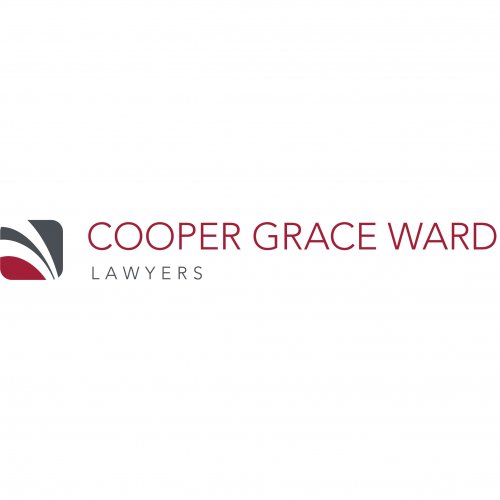Best Restructuring & Insolvency Lawyers in Brisbane
Share your needs with us, get contacted by law firms.
Free. Takes 2 min.
List of the best lawyers in Brisbane, Australia
About Restructuring & Insolvency Law in Brisbane, Australia
Restructuring and insolvency law in Brisbane is a specialist area dealing with financial distress in businesses and individuals. It involves legal processes for managing, restructuring, or closing down businesses or personal finances when debts cannot be paid as they fall due. The primary objective of restructuring is to help viable businesses continue trading by reorganising their debts and operations. Insolvency, on the other hand, relates to formal processes such as liquidation, bankruptcy, and voluntary administration. Brisbane follows the federal laws set out in the Corporations Act 2001 (Cth) and Bankruptcy Act 1966 (Cth), but there are also local practices, court procedures, and professional standards to consider.
Why You May Need a Lawyer
Legal support in restructuring and insolvency can be crucial. Common reasons to seek a lawyer’s help include:
- Your company is experiencing cash flow issues, defaulting on debts, or at risk of being wound up.
- Creditors are threatening to commence recovery or liquidation proceedings against your business.
- As a director, you are concerned about potential personal liability for company debts or insolvent trading.
- You are an individual facing bankruptcy or have received a bankruptcy notice.
- You need guidance on options like voluntary administration, deed of company arrangement (DOCA), or safe harbour protections.
- You are a creditor seeking to recover funds from an insolvent debtor or participate in the insolvency process.
- You require advice on restructuring to prevent insolvency, such as negotiating with creditors or refinancing.
- You want to contest or defend court actions related to insolvency proceedings.
Expert legal advice ensures you understand your rights, obligations, and the best strategies available for your unique situation.
Local Laws Overview
Restructuring and insolvency procedures in Brisbane are governed mainly by federal legislation, but the application and enforcement take place locally, with Brisbane-based courts and registered insolvency practitioners handling cases. Key aspects of local law include:
- The Corporations Act 2001 (Cth) covers business restructurings, voluntary administration, liquidation, and insolvency practitioner regulation.
- The Bankruptcy Act 1966 (Cth) governs personal insolvency, including sequestration orders, voluntary bankruptcy, and arrangements with creditors.
- ASIC (Australian Securities and Investments Commission) regulates company insolvency matters, while AFSA (Australian Financial Security Authority) handles personal insolvency.
- Queensland Supreme and District Courts often handle large or complex insolvency litigation.
- Court processes, local filing requirements, and timeframes must all be met according to Queensland procedural rules.
- Queensland-based practitioners must comply with the code of conduct set out by ARITA (Australian Restructuring Insolvency and Turnaround Association).
- Recent law reforms, such as safe harbour provisions and simplified liquidation processes, offer additional practical solutions for businesses in distress.
Frequently Asked Questions
What is the difference between restructuring and insolvency?
Restructuring is the process of reorganising a company’s structure, finances, or operations to avoid insolvency and improve profitability. Insolvency is the state where an entity is unable to pay debts when due, leading to formal processes like liquidation or bankruptcy.
When should I seek legal advice if I think my business is in trouble?
You should seek legal advice as soon as you suspect there are significant financial problems. Early intervention increases the range of options available and may help avoid formal insolvency processes.
Can I be personally liable for my company’s debts?
Directors can be personally liable for company debts in certain situations, especially if they allow the company to continue trading while insolvent or if they breach their directors’ duties.
What are the different types of insolvency procedures in Brisbane?
The main procedures include voluntary administration, liquidation (solvent and insolvent liquidation), receivership, and bankruptcy for individuals. These offer different ways to manage financial distress.
What is a voluntary administration?
Voluntary administration is a process where an independent administrator takes control of a company to assess options for its survival or a better return for creditors than immediate liquidation.
How does bankruptcy affect individuals in Brisbane?
Bankruptcy lasts for three years in most cases. It affects your assets, ability to travel overseas, and credit rating. Some assets may be sold to pay creditors, and there are legal obligations you must comply with during bankruptcy.
Can I avoid liquidation or bankruptcy through restructuring?
Yes, restructuring strategies such as negotiating with creditors, arranging payment plans, or seeking safe harbour protection may prevent more disruptive insolvency processes if financial problems are identified early.
Who regulates insolvency practitioners in Queensland?
Insolvency practitioners must be registered with ASIC (for company matters) or AFSA (for personal matters), and many are members of ARITA, which sets industry standards.
Does being declared bankrupt affect my employment?
Some professions are affected by bankruptcy, and certain licences may be revoked or restricted. You may be disqualified from acting as a company director.
How can creditors recover debts from insolvent entities?
Creditors may lodge proofs of debt, attend creditor meetings, or initiate proceedings such as statutory demands or court actions to recover debts or participate in the distribution of assets by the insolvency practitioner.
Additional Resources
Consider consulting the following resources for more information and support:
- ASIC (Australian Securities and Investments Commission) for company insolvency guidance and practitioner registers
- AFSA (Australian Financial Security Authority) for personal insolvency, bankruptcy information, and support services
- ARITA (Australian Restructuring Insolvency and Turnaround Association) for industry standards and directories of local professionals
- Queensland Law Society for referrals to experienced lawyers in restructuring and insolvency
- Legal Aid Queensland for general advice or assistance in eligible cases
Next Steps
If you are facing financial difficulties or are involved in a restructuring or insolvency matter in Brisbane, consider the following steps:
- Seek prompt legal advice from a qualified restructuring or insolvency lawyer based in Brisbane.
- Gather relevant financial documents, correspondence from creditors, court notices, and records of company or personal assets.
- Discuss your goals and concerns openly with your lawyer, including your preferred outcomes, business viability, and any personal exposure.
- Act quickly, as there are often strict timeframes for responding to statutory demands, court notices, or creditor actions.
- Remain proactive and engaged throughout the process to ensure you understand your rights, obligations, and available options.
A specialist lawyer can help you navigate the complexities of restructuring and insolvency law, giving you the best chance of a positive resolution.
Lawzana helps you find the best lawyers and law firms in Brisbane through a curated and pre-screened list of qualified legal professionals. Our platform offers rankings and detailed profiles of attorneys and law firms, allowing you to compare based on practice areas, including Restructuring & Insolvency, experience, and client feedback.
Each profile includes a description of the firm's areas of practice, client reviews, team members and partners, year of establishment, spoken languages, office locations, contact information, social media presence, and any published articles or resources. Most firms on our platform speak English and are experienced in both local and international legal matters.
Get a quote from top-rated law firms in Brisbane, Australia — quickly, securely, and without unnecessary hassle.
Disclaimer:
The information provided on this page is for general informational purposes only and does not constitute legal advice. While we strive to ensure the accuracy and relevance of the content, legal information may change over time, and interpretations of the law can vary. You should always consult with a qualified legal professional for advice specific to your situation.
We disclaim all liability for actions taken or not taken based on the content of this page. If you believe any information is incorrect or outdated, please contact us, and we will review and update it where appropriate.















